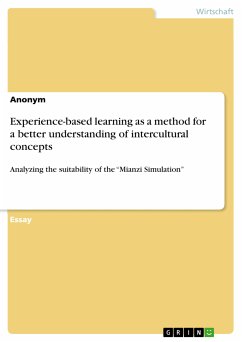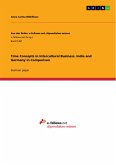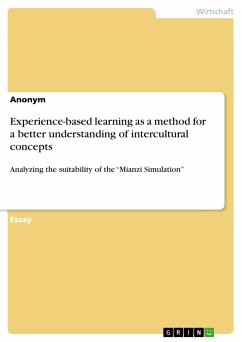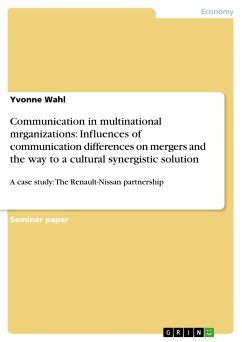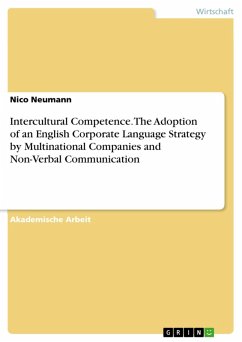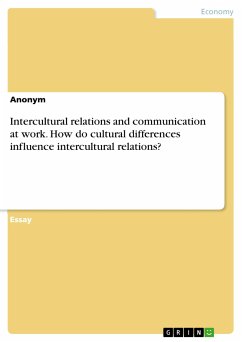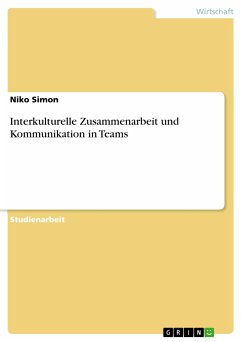Essay aus dem Jahr 2013 im Fachbereich BWL - Sonstiges, Note: 1,7, Friedrich-Alexander-Universität Erlangen-Nürnberg (International Management), Veranstaltung: Advanced Intercultural Communication and Negotiation Skills, Sprache: Deutsch, Abstract: The special role of China in the globalization process as a trading partner for the western world can be best observed in the increasing number of business trips from foreign business persons to China. It reached the total amount of more than 6.3 million trips in 2011 (National Bureau of Statistics of China, 2012). All these employees need to be prepared to be able to deal with the characteristics of Chinese business which result from different concepts of thinking in the Chinese and western culture. Crucial incidents can happen, if the preparation process is not taken seriously. In order to avoid unpleasant situations, business people mostly get prepared with the use of intercultural trainings to learn about the common concepts that influence thinking and actions in foreign cultures. One of the most important concepts coming from the Chinese culture is called “Mianzi (面子)” and means “to give and lose face”. In order to increase the understanding for this concept, experience-based learning methods can be used. The “Mianzi Simulation” is supposed to be one representative of these methods and was developed by students in a master course at the University of Erlangen-Nürnberg. The aim of this paper is to investigate on the success of the “Mianzi Simulation” as well as its suitability into the experience-based learning approach. Furthermore, its possible practical relevance for the future in intercultural trainings is examined. Therefore, the following research question will be discussed during this paper: Does the “Mianzi Simulation” facilitate the understanding of the concept of face for participants of intercultural trainings? To answer this research question, first the most important terms concerning experience-based learning and the concept of Mianzi will be clarified. Then, the concept and requirements of experience-based learning are examined. This part is followed by the description of the recently designed “Mianzi Simulation” and the derivation of research hypotheses. In the main part of this paper, it will be investigated, if the “Mianzi Simulation” fulfills the characteristics of experience-based learning and is therefore a suitable instrument to be used in intercultural trainings to ensure a better understanding of the concept of face. Finally, the “Mianzi Simulation” will be critically assessed and an outlook for future research will be given.
Bitte wählen Sie Ihr Anliegen aus.
Rechnungen
Retourenschein anfordern
Bestellstatus
Storno

